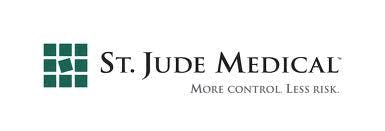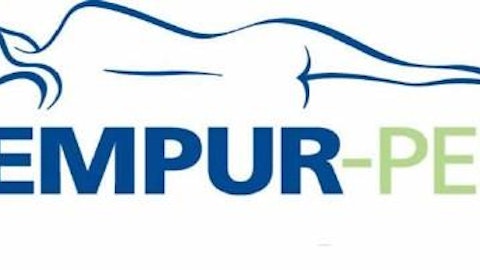Earnings season isn’t over, but the quarters from health care companies that have already reported have given us a great look at how the medical device sector’s faring. Numerous companies have reported good results, but one constant remains: The cardiac rhythm management, or CRM, industry — which handles everything from pacemakers to defibrillators — is facing off with a tough market. Sales are falling across the industry yet again, perpetuating a worrying trait that hasn’t eased up after tough results in the third quarter of 2012, as well.
Is there hope for a turnaround for companies in the CRM space, or is this an industry on the decline that you should keep your investment far away from?

Just a few years ago, the CRM market was on the rise, growing by double digits. Now, however, the market across the world has dried up — in both the U.S. and internationally, sales are falling for CRM products.
St. Jude Medical, Inc. (NYSE:STJ) has traditionally been among the powers in this business, but the company’s reliance on CRM sales has come back to bite it. St. Jude’s CRM division supplies around 50% of total company sales, and when that division’s suffering, it’s tough sledding for the company.
St. Jude’s CRM department has already been on the downslide, with sales falling 4% on a constant currency in the third quarter — a significant year-over-year slide. With the company’s full-year results now out, we can see just how hard the division has fallen: CRM sales at a constant currency fell 5% year over year in St. Jude’s fourth quarter, near the high end of the business’ guidance, with sales down 3.5% over the course of the full year.
Fortunately, St. Jude’s largest segment in the CRM business — its ICD (or implantable cardioverter defibrillator) segment — hasn’t been hit quite as bad. Currency issues have really plagued this business, as the ICD segment only lost 2% over the course of the year at a constant currency. Falling pacemaker revenue has really hit St. Jude hard, but this company is hardly alone in its CRM troubles.
Boston Scientific Corporation (NYSE:BSX) doesn’t rely as heavily on CRM sales as its rival, but its sales are no less concerning. After losing 4% in its CRM revenue for the third quarter, Boston Scientific’s business dropped another 4% in Q4 for a total loss of 7% year-over-year for 2012.
Even the industry’s biggest major player, Medtronic, Inc. (NYSE:MDT) , has witnessed its CRM business losing sales, particularly among pacemakers. Things aren’t so good in this sector, but why are sales falling — and what should you account for in the future?
What the future holds for the CRM business
The CRM market is already mature to the point of saturation in economies such as the U.S. and Europe. New patients for implantable devices will inevitably arise due to rising obesity rates and an aging population in advanced economies — two major indicators for heart problems. However, with many patients already being treated with such devices, finding growth will remain a challenge. The Millennium Research Group has predicted little growth from the CRM market through 2016, particularly with prices falling in advanced economies.




